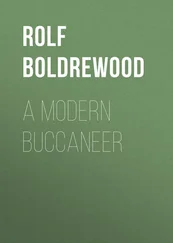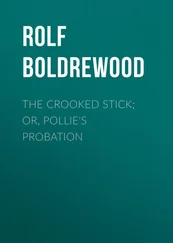Rolf Boldrewood - War to the Knife
Здесь есть возможность читать онлайн «Rolf Boldrewood - War to the Knife» — ознакомительный отрывок электронной книги совершенно бесплатно, а после прочтения отрывка купить полную версию. В некоторых случаях можно слушать аудио, скачать через торрент в формате fb2 и присутствует краткое содержание. Жанр: foreign_antique, foreign_prose, на английском языке. Описание произведения, (предисловие) а так же отзывы посетителей доступны на портале библиотеки ЛибКат.
- Название:War to the Knife
- Автор:
- Жанр:
- Год:неизвестен
- ISBN:нет данных
- Рейтинг книги:4 / 5. Голосов: 1
-
Избранное:Добавить в избранное
- Отзывы:
-
Ваша оценка:
- 80
- 1
- 2
- 3
- 4
- 5
War to the Knife: краткое содержание, описание и аннотация
Предлагаем к чтению аннотацию, описание, краткое содержание или предисловие (зависит от того, что написал сам автор книги «War to the Knife»). Если вы не нашли необходимую информацию о книге — напишите в комментариях, мы постараемся отыскать её.
War to the Knife — читать онлайн ознакомительный отрывок
Ниже представлен текст книги, разбитый по страницам. Система сохранения места последней прочитанной страницы, позволяет с удобством читать онлайн бесплатно книгу «War to the Knife», без необходимости каждый раз заново искать на чём Вы остановились. Поставьте закладку, и сможете в любой момент перейти на страницу, на которой закончили чтение.
Интервал:
Закладка:
CHAPTER III
He could not well refuse an invitation to dinner from his successor, who called upon him, in form, the day after his arrival, and again begged him to make the old hall his home until he left England.
This request he begged to decline, much to Mr. Lexington's disappointment, though he agreed to dine.
"My people were looking forward to having your advice upon all sorts of matters, which, of course, you would know about better than any one else. We are not going to make any great changes that I know of," said Mr. Lexington. "Everything on the estate is in excellent order; your overseer – I mean bailiff – seems sensible and experienced. I shall give him his own way chiefly. He knows the place and the people, which of course I don't. My children, being Australians, are fond of horses; they are so much pleased with your lot, that you may be sure of their being well treated – and pensioned, when their time comes. I never sold an old favourite in my life, and am not going to begin in England, though you can't turn out a horse here all the year round as you can in Australia. And now I'll say good afternoon. Sorry you can't stay with us. We shall see you at dinner – half-past seven; but come any time."
Upon which Mr. Lexington departed, leaving a pleasant impression with the former owner.
"What mistaken prejudices English people have, for the most part!" he thought. "Sir Giles Weatherly, I heard, was raving at my want of loyalty to the landed interest because I had left an opening for some 'rough colonist' to break into our sacred county enclosure. This man is a thorough gentleman, liberal and right-feeling; besides, with pots of money too, he will be able to do far more for the neighbourhood than would ever have been in my power. I shouldn't be surprised if the county considers him an improvement upon an impoverished family like ours before many months are past."
With a half-sigh, involuntary, but not without a distinct feeling of regret, as he thought how soon his place would be filled up, and how different a position would have been his had one woman's answer been otherwise, he addressed himself once more to the momentous question of emigration. He had purchased a quantity of colonial literature, and had made some headway through the handbooks thoughtfully provided for the roving Englishman of the period. The difficulty lay in deciding between the different offshoots of Britain. All apparently possessed limitless areas of fertile land and rich pasturage, in addition to goldfields, coal-mines, opal and diamond deposits, silver and copper mines, the whole vast territory reposing in safety under the world-wide ægis of the British flag.
Before he had found anything like a solution of this pressing problem, the church clock suggested dressing. So, attiring himself suitably, he made his way to the Court. He rang the hall-door bell somewhat impatiently, having only partially got over the feeling of strangeness at being invited to dinner at his own house, so to speak, and being shown into the drawing-room by his own butler. This official's gravity relaxed suddenly, after a vain struggle, and ended in a gasping "Oh, Sir Roland!" as he announced him in due form.
In the drawing-room, where nothing had been added or altered, he found three ladies, the son of the house, and his host. "Mrs. Lexington, Miss Lexington, and my daughter Violet, with my son Frank," comprehended the introductions.
All were in evening attire, the ladies very quietly but becomingly dressed. The dinner was much as usual; his own wines, glass, and table decorations were in the same order as before. Could he have given a dinner-party unawares? His position at the right hand of Mrs. Lexington seemed hardly to decide the question.
No reference was made by any of the company, which included the rector of the parish (a few minutes late), to his reasons for expatriating himself, though expressions of regret occurred that he should be leaving the country.
"My daughters are lost in astonishment that you should voluntarily quit such a paradise, as it appears to us sunburnt Australians," said the lady of the house.
"You wouldn't have got me to leave it without a fight," said Miss Lexington; "but I suppose men get tired of comfort in this dear old country, where everything goes on by itself apparently, and even the servants seem 'laid on' like the gas and water. They must want danger and discomfort as a change."
"There would not appear to have been much in the country from which you came," replied Sir Roland, declining the personal question.
"We have had our share," said Mr. Lexington. "Fortunately one is seldom the worse for it; perhaps the more fitted to enjoy life's luxuries, when they come in their turn. Tell Sir Roland something, Frank, about that dry season when you were travelling with the 'Diamond D' cattle."
"Rather early in the evening for Queensland stories, isn't it?" replied the younger man thus invoked, who did not, except in a deeper tint of bronze, present any point of departure from the home-grown product. "Tell him one or two after dinner. I'd rather have his advice about the country sport, if he'll be good enough to enlighten me."
"A better guide than my old friend the rector here the country doesn't hold," said the ex-squire. "He knows to a day when 'cock' may be expected, and though he doesn't hunt now, he used to be in the first flight; as for fishing, he's Izaak Walton's sworn disciple. I leave you in good hands. All the same, I'm ready to be of use in any way."
"The weather feels warm now, even to us. We hardly expected such a day," remarked Mrs. Lexington; "and as we have none of us been home before, we don't quite know what to make of it."
"If it's a trifle warm and close, it never lasts more than a few days, they tell me," said the eldest daughter; "and the nights are always cool. That's one comfort. I always feel like putting a new line in my prayers of thankfulness for there being hardly any flies and no mosquitoes. And such lovely fresh mornings to wake up in! Such trees, such grass! No wonder the hymns speak of 'a happy English child!'"
"All the same, Australia is not a bad country," said Mrs. Lexington, "though we did have seventeen days once at the Macquarie River when it was a hundred in the shade every day and ninety every night. On the other hand, the Riverina winter was superb – such cloudless days and merely bracing mornings and evenings. I dare say we shall miss them here in 'chill October.' Sir Roland will give us his impressions when he returns, perhaps," she continued. "It is hard to find a climate which is pleasant all the year round. A cool summer is enjoyed at the expense of a cold winter. And we have extremes even in Australia. I saw in the paper lately some account of pedestrians being thirty hours in snow, and much exhausted when they reached their destination after being out all night."
"I should hardly have thought that possible," said the guest, genuinely astonished.
"English people hear more of the heat of our climate than the cold," said his host, good-humouredly; "but the mails are carried on snow-shoes in the winter season of a town I know, and I have seen the children going to school in them too."
"Oh, come! dad will soon begin to tell stories about snakes," said Miss Violet, "if we don't turn the conversation. Do you have much lawn tennis in the neighbourhood, Sir Roland?"
"A good deal," he replied, "as the rector will tell you. His daughters are great performers, and at the last tournament with West Essex Miss Charlton was the champion."
"Oh, how delightful! We all play except dad and mother, so we shall be able to keep up our form."
"Then it's not too hot in the Australian summer for exercise?"
"It's never too hot for cricket, or dancing, or tennis in our country. We couldn't do without them, so the weather must take its chance. After all, a little heat, more or less, doesn't seem to matter."
Читать дальшеИнтервал:
Закладка:
Похожие книги на «War to the Knife»
Представляем Вашему вниманию похожие книги на «War to the Knife» списком для выбора. Мы отобрали схожую по названию и смыслу литературу в надежде предоставить читателям больше вариантов отыскать новые, интересные, ещё непрочитанные произведения.
Обсуждение, отзывы о книге «War to the Knife» и просто собственные мнения читателей. Оставьте ваши комментарии, напишите, что Вы думаете о произведении, его смысле или главных героях. Укажите что конкретно понравилось, а что нет, и почему Вы так считаете.












